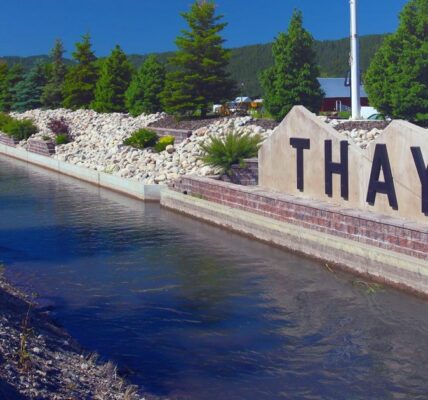State seeks ‘sovereign immunity’ from local development restrictions on school land parcels

By Kate Ready
Jackson Hole Daily
Via- Wyoming News Exchange
JACKSON — State officials want out of Teton County’s land regulations and zoning.
That’s the gist of a legal complaint filed Thursday by the Wyoming Attorney General’s office against the Teton County Board of County Commissioners in Laramie County District Court.
The document — assigned to Judge Steven K. Sharpe of the First District — asks the court to declare that lessees on state land “are not subject to county land use/ development regulations.”
Two temporary use permits were issued by the state in June on land in Teton County. The permits say tenants must follow “all state, federal and local laws and regulations.”
The complaint filing follows a mounting legal back-and-forth between Teton County and the state board that governs how set-aside state land is rented to generate money for Wyoming public schools.
Land has historically been rented for mineral extraction and ranching, but following recent developments near Teton Village, some conservationists in Teton County worry spotty oversight from state agencies — or development that doesn’t fit in the comprehensive plan — could become the norm.
In an attempt to enforce building regulations, wetland setbacks, and other health and safety codes on land abutting Teton Village, county Planning and Building Director Chris Neubecker gave abatement notices to the two tenants of the Highway 390 state land parcel, Basecamp Hospitality LLC and Wilson Investments LLC.
Basecamp has started, but not completed, construction on 11 “glamping” geodesic domes, and Wilson Investments has permits to put up 800 rental storage units nearby.
Neubecker alleged Basecamp had broken rules under seven different land development regulations, including violating setback requirements for development and grey-water leach fields; a failure to identify wetlands; refusal to comply with scenic development standards; and starting electrical work without a permit.
Wilson Investments is further behind in construction, but the county argues they should also be beholden to local rules.
In December, county commissioners had tentatively scheduled abatement hearings for both companies in early January.
Responding to the local abatement process in a Dec. 20 letter, the attorney general’s office objected to commissioners’ notice that both companies must comply with county development regulations, writing that the state has “sovereign immunity.”
“The Board is entitled to a declaration by this Court that the Board and its permittees on state trust land are not subject to counties’ land use/development regulations and that sovereign immunity bars a county from enforcing its land use/development regulations against the Board or its permittees on state trust land,” the complaint said.
Besides clarifying if the state should comply with local regulations, Deputy Attorney General Brandi Monger’s complaint asks the court to grant “injunctive relief,” which, if granted, would prohibit any enforcement of county development regulations inside the boundaries of state trust lands.
If granted, that injunction would override the county’s abatement process.
Monger signed the 10-page complaint on behalf of five top elected officials on the State Board of Land Commissioners: the governor, treasurer, auditor, secretary of state and superintendent of public instruction.
Michael Pearlman, spokesperson for Governor Mark Gordon, said he could not comment on the matter when reached by phone Friday afternoon.
“I am not an attorney,” he said.
Pearlman’s office did clarify that the ruling would only apply to the Teton County parcel off Highway 390, though the logic could set legal precedent.
The state land board directed the attorney general’s office to issue the complaint after a unanimous vote in a Dec. 16 special meeting which lasted five minutes and included no discussion or public comment.





